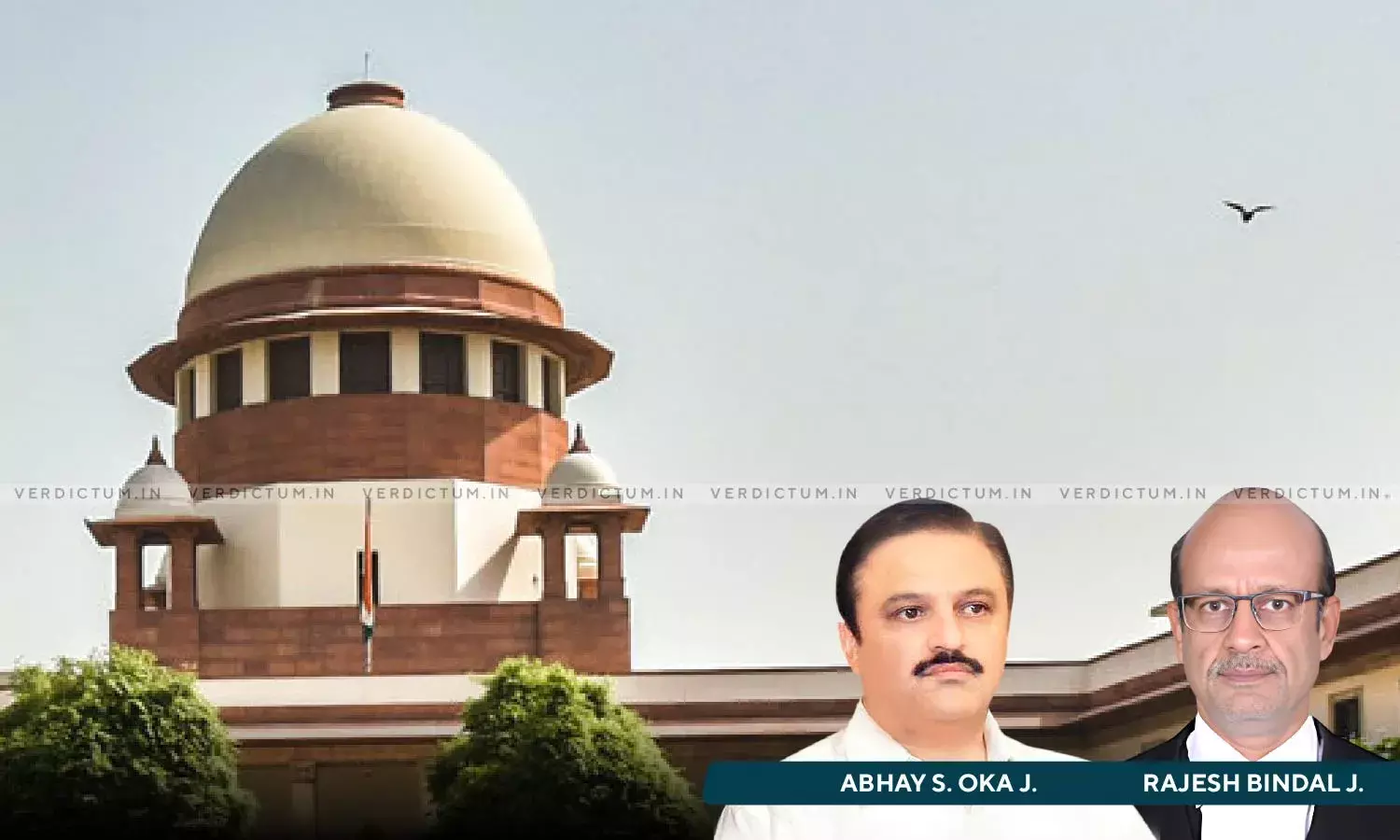Supreme Court Invokes Article 142 To Grant Promotion In UP Subordinate Office Recruitment Case

The Supreme Court while invoking Article 142 of the Constitution granted promotion to four candidates in a case that revolved around the recruitment to ministerial Group "C" posts in subordinate offices in Uttar Pradesh, governed by the Uttar Pradesh Subordinate Offices Ministerial Group "C" Posts of the Lowest Grade (Recruitment by Promotion) Rules, 2001. These rules were framed under the authority of Article 309 of the Constitution.
A two judge Bench of Justice Abhay S. Oka and Justice Rajesh Bindal held that, “This is a fit case to exercise our jurisdiction under Article 142 of the Constitution of India by directing the respondents to grant promotion to four candidates (three having the High School examination qualification and one having the qualification of passing the Intermediate examination) who are immediately below the candidates promoted in the process of 2014 in the merit list.”
Rule 5 of the said Rules specified that 20% of the ministerial Group "C" posts of the lowest grade should be filled through promotion from Group "D" employees. Out of this 20%, 15% is allocated for Group "D" employees who passed the High School examination and completed five years of service, while the remaining 5% is for those who passed the Intermediate examination.
In 2010, a seniority list of Group "D" employees in Sitapur, Uttar Pradesh was prepared for promotion to Group "C" posts under these rules. In 2014, some employees were promoted, but the appellants claimed they were more senior and deserved promotion. They filed a writ petition in the High Court, which directed them to approach the Uttar Pradesh State Public Services Tribunal. The Tribunal found irregularities but the High Court ultimately rejected their petition.
Advocate Rohit Kumar Singh appeared for the Petitioners and Advocate Vishwa Pal Singh appeared for the Respondents.
In 2019, the case reached the Supreme Court, which ordered the State Government to provide details of promotions made under Rule 5 from 2015 onwards. An affidavit was subsequently filed, revealing that promotions had not been conducted since 2015, and 19 posts were currently vacant.
The Supreme Court determined that four posts were available under the 20% quota. Thus, three candidates who passed the High School examination and one who passed the Intermediate examination should be promoted.
The Court said, “The provision regarding promotion, as contained in Rule 5 of the said Rules, ensures that Group “D” employees who possess basic educational qualifications have some incentive for performing well. A promotional avenue has been made available to the Group “D” employees. Now, for the last eight years, though there are vacancies, Group “C” posts have not been filled from the source of recruitment as provided in Rule 5 of the said Rules. In the bargain, the case of the appellants and other similarly situated persons has not been considered.”
The Court invoked Article 142 of the Constitution to issue this directive, specifying that they should be treated as promoted from the date of the order, with seniority based on their actual appointment date. No monetary relief beyond salary and perquisites applicable to Group "D" posts was granted.
The Court clarified that the decision in this case would not to be considered a precedent. The appeal was allowed, and no costs were awarded.
Cause Title: Rajendra Prasad & Ors. v. State of Uttar Pradesh & Ors., 2023INSC792
Click here to read/download Judgment


